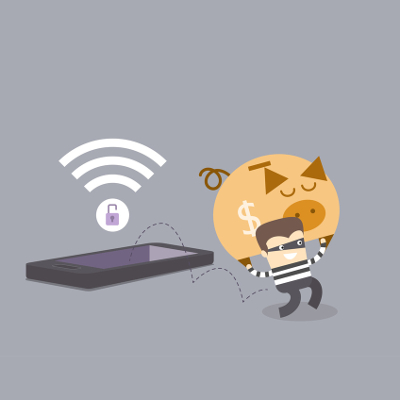
Wireless Internet connections, often referred to by the moniker Wi-Fi, have become a popular offering from public businesses. Even organizations that have no real need for an Internet connection to conduct business, like restaurants and coffee shops, now offer Wi-Fi for their customers. However, public Wi-Fi can be dangerous, especially for the business professional.
The biggest problem, however, is that most people who use public Wi-Fi are fully aware of the risks, yet, still continue to use it. The Identity Theft Resource Center claims that 78.5 percent of users who connect to free Wi-Fi understand that there are major risks involved, and only 26.7 percent use a VPN to keep themselves safe. Free Wi-Fi is dangerous, and we’ll show you how using a series of examples.
Anyone Can Access It
Unless the Wi-Fi router is protected with a passcode, chances are that the network is vulnerable to hacking attacks and other threats. Even then, if the router isn’t configured properly, the passcode doesn’t necessarily help. Since anyone can access it at their leisure, nothing is stopping a hacker from connecting to the router and spying on others who might be connected to the network.
It’s worth mentioning, although we use the term ‘hacker,’ even a mischievous child with a bit of curiosity and know-how could get access to your files if the connection isn’t secure.
Free Wi-Fi is Highly Used
This goes without saying, but the more people who use an Internet connection, the lower the quality of the connection, and the more likely it is that a hacker will be on it. Hackers know that free Wi-Fi draws crowds, so they use the search for the convenience to find new targets for their treachery.
Data Isn’t Encrypted
You can think of encryption as an extra layer of protection for any data that’s sent to and received from the Wi-Fi connection. When routers have encryption, hackers have a more difficult time stealing data of substance.
What You Can Do
While unsecured public Wi-Fi routers aren’t something that you have direct control over, you can certainly take steps to be mindful of using them when you’re out and about. Here are three best practices for avoiding a potentially risky Wi-Fi network in a public place.
- Only connect to networks that require security codes.
- Set your phones and devices so that they don’t automatically connect to any new Wi-Fi network.
- Use a virtual private network (VPN).
If your business needs its employees to stay safe while on the move, reach out to us at 810.230.9455. We’ll help your team understand the best way to work around potentially threatening situations.

